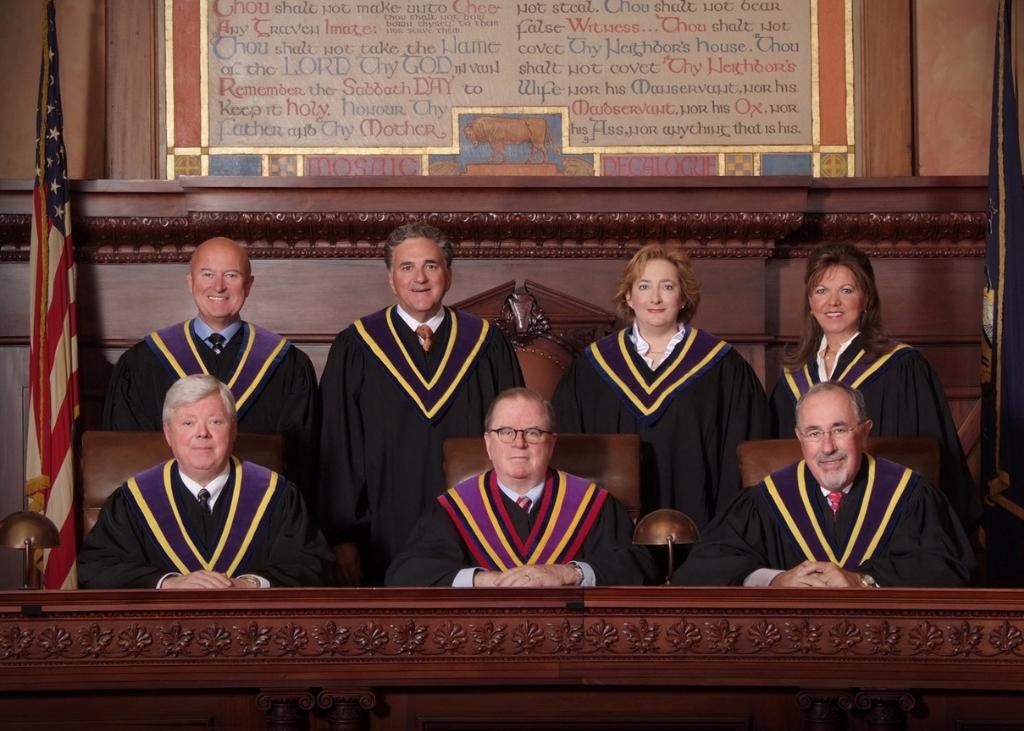 The Pennsylvania Supreme Court is hearing oral arguments today that may lead to a chance at parole for more than 400 inmates convicted of murder as minors.
The Pennsylvania Supreme Court is hearing oral arguments today that may lead to a chance at parole for more than 400 inmates convicted of murder as minors.
The Court is deciding if a June 2012 U.S. Supreme Court decision is retroactive, and if so, what sentence should be given to two convicts in today’s cases. The federal court, in Miller v. Alabama, said that minors convicted of murder have a right to present mitigating factors — such as the immaturity of youth — to sentencing judges. That invalidates one-size-fits-all mandatory life without parole sentences listed in federal and 28 states’ statutes.
“It’s about retroactivity and also resentencing,” said Marsha Levick, deputy director of the Juvenile Law Center in Pennsylvania, who is arguing for retroactivity before the court. The decision for the two defendants could set a precedent for the hundreds more like them in Pennsylvania.
She argues the U.S. Supreme Court intended for Miller to be retroactive. The federal court itself granted relief to a minor in a case tied to Miller who was already sentenced to life without parole. She said the court would not have done that unless they meant it to apply to all people similarly situated.
As for the sentence, “once you declare mandatory life without parole sentences for juveniles unconstitutional, we have no other sentence for first- and second- degree murder,” said Levick.
So the defense will argue for a reversion to the sentence for third-degree murder and the next most severe sentence available after first- and second- degree murder. In Pennsylvania, that’s a maximum of 40 years.
Sentencing laws vary by state, what’s on Pennsylvania’s books doesn’t match other states, but the principle may apply across borders. Said Levick, “the analysis that gets us there [to the next most severe sentence] may likely be relevant to jurisdictions across the country where there is no sentencing option on the books.”
Douglas Berman thinks prospects for retroactivity are good. “It’s in no one’s interest to litigate this,” said the law professor at Ohio State University and author of the award-winning Sentencing Law and Policy blog.
He explained that retroactivity historically deals with the possibility of overturning convictions. So prosecutors fight hard to protect convictions they have won in the past. But Miller only talks about sentences. All convictions will stand. And judges can still hand out sentences of life without the chance of parole or even decades-long sentences.
Indeed, Berman predicts some judges will do just that. He points out that under an earlier U.S. Supreme Court ruling granting resentencing to certain juvenile lifers, some Florida judges have laid out sentences of 100 years.
Levick is more cautious about retroactivity in other states. “I think the response from prosecutors is uneven. They’re challenging it in Pennsylvania,” she said, but “I don’t know that we should assume they will be challenging it in the 28 other states in which these cases are at issue.”
Pennsylvania’s is the first state Supreme Court test of Miller retroactivity. The state holds more juvenile lifers for murder than any other. In Florida, which counts more than 250 similar inmates, state law already considers Miller retroactive. In Iowa, the governor has by executive order converted the state’s 38 juvenile life without parole sentences to 60-year minimum sentences. However, that order may be challenged in court.
The Pennsylvania high court has no deadline to make its decision.
A bill is expected to be filed in the next session of the state Legislature that would lay out new sentencing guidelines for first- and second-degree murders committed by minors, to replace the laws invalidated by Miller.
